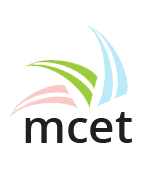Campus Placement
With the ever expanding manpower needs of today, it is extremely important for the academia to work in close association with the industry to develop the appropriate expertise to bridge the gap between the industry and the academia. Through MCET campus placement More than 80% of our students were placed in different companies .
We are extremely happy to state that under the able guidance of the placement officer , our placement cell has has been very active—this cell not only co ordinates the placement actives of the students but it also caters to various other activities that go hand in hand with placement –like personality grooming and development soft skills, interview skills etc.We have been successful in placing many of our students in prestigious organizations. Our placement cell has been working aggressively with many domestic and multinational organizations and we are able to get opportunities for students of all branches of Engineering. The on campus interviews for placement is on the rise the placement scenario in Mcet is on a rise.
10 tips to improve interview performance and Excel in Campus placement
Even the smartest and most qualified job seekers need to prepare for their job interview. Why, you ask? Interview skills are learned, and there are no second chances to make a great first impression. These 10 interview tips will teach you how to answer interview questions and convince the hiring manager that you are the one for the job.
Practice good nonverbal communication
It’s about demonstrating confidence: standing straight, making eye contact and connecting with a firm handshake. That first nonverbal impression can be a great beginning—or quick ending—to your interview.
Dress for the job or company
Today’s casual dress codes do not give you permission to dress as “they” do when you interview. It is important to know what to wear to an interview and to be well-groomed. Whether you wear a suit or something less formal depends on the company culture and the position you are seeking. If possible, call to find out about the company dress code before the interview.
Listen
From the very beginning of the interview, your interviewer is giving you information, either directly or indirectly. If you are not hearing it, you are missing a major opportunity. Good communication skills include listening and letting the person know you heard what was said. Observe your interviewer, and match that style and pace.
Don’t talk too much
Telling the interviewer more than he needs to know could be a fatal mistake. When you have not prepared ahead of time, you may ramble when answering interview questions, sometimes talking yourself right out of the job. Prepare for the interview by reading through the job posting, matching your skills with the position’s requirements and relating only that information.
Don’t be too familiar
The interview is a professional meeting to talk business. This is not about making a new friend. Your level of familiarity should mimic the interviewer’s demeanor. It is important to bring energy and enthusiasm to the interview and to ask questions, but do not overstep your place as a candidate looking for a job.
Use appropriate language
It’s a given that you should use professional language during the interview. Be aware of any inappropriate slang words or references to age, race, religion, politics, or sexual orientation—these topics could send you out the door very quickly.
Don’t be cocky
Attitude plays a key role in your interview success. There is a fine balance between confidence, professionalism, and modesty. Even if you’re putting on a performance to demonstrate your ability, overconfidence is as bad, if not worse, as being too reserved.
Take care to answer the questions
When interviewers ask for an example of a time when you did something, they are asking behavioral interview questions, which are designed to elicit a sample of your past behavior. If you fail to relate a specific example, you not only don’t answer the question, but you also miss an opportunity to prove your ability and talk about your skills.
Ask questions
When asked if they have any questions, most candidates answer, “No.” Wrong answer. Part of knowing how to interview is being ready to ask questions that demonstrate an interest in what goes on in the company. Asking questions also gives you the opportunity to find out if this is the right place for you. The best questions come from listening to what you’re asked during the interview and asking for additional information.
Don’t appear desperate
When you interview with the “please, please hire me” approach, you appear desperate and less confident. Reflect the three Cs during the interview: cool, calm, and confident.




